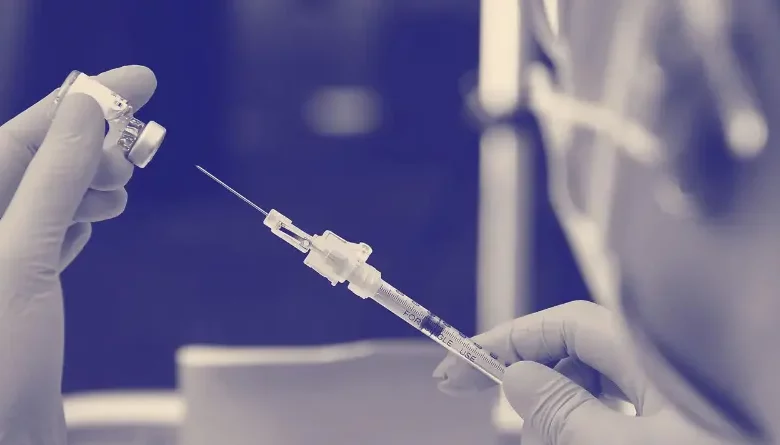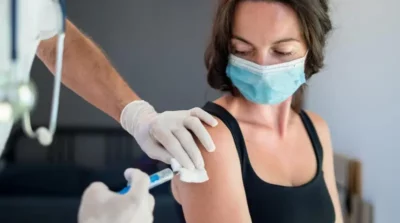Corona virus: Today the platform opens for the fourth dose of the vaccine


The fourth dose of the vaccine for the corona virus will be administered starting today, Thursday, April 7, to people over 70 and over 60 with underlying diseases, the Ministry of Health announced. Today, the platform for the fourth installment was opened for 400,000 citizens over the age of 80. Meanwhile, next week citizens aged 70 to 79 years will have access to appointments, and then those aged 60 to 69 years.
It is recalled that the president of the National Immunization Committee, Maria Theodoridou, announced yesterday, Tuesday, April 5, in the emergency briefing that it is proposed, taking into account the data from the international literature and the current epidemiological data, the administration of the fourth dose of vaccine (or a second booster dose) to specific groups population.
In particular, the fourth dose of vaccine, with mRNA vaccine and within 4 months after vaccination from the third dose of vaccine, is recommended in the following groups:
- People over the age of 70 and those who live in nursing homes
- People over the age of 60 and especially with serious underlying diseases
The recommendation for a vaccination with the fourth dose in the above groups, “will have a benefit as it is expected to seriously reduce the possibility of their hospitalization”, he emphasized.
As announced by the general secretary of Primary Health Care, Marios Themistokleous, the platform opens on April 7 for the over 80s to make appointments, followed next week by the 70-79 age group and the following week for the 60-69 age group years. In people who have become ill after the third dose, a fourth dose is not recommended.
Regarding the vaccinations of children and teenagers, Mrs. Theodoridou announced the following:
- For children aged 12-17 years, with immunosuppression and high-risk diseases (transplantation and renal failure) a fourth dose has been approved, which should be given 3 months after the third dose
- For children aged 12-17 years who belong to the group at increased risk (ie children with obesity, diabetes, and cardiovascular diseases) a third dose is given after 6 months from the previous dose
Finally, he pointed out that vaccination studies for children under 5 years old are ongoing and the national vaccination committee is not in a position to announce anything in time.
Furthermore, Mrs. Theodoridou referred to the widening of the interval between the two doses of the basic vaccination (first and second dose) with the mRNA vaccine in the general population.
The committee decided to change the intervals, from 3 weeks currently applicable for Pfizer and 4 weeks for Moderna to 8 weeks for both preparations.
According to Mrs. Theodoridou, studies have shown that the effectiveness increases when the interval between the administration of the basic vaccination (1 and 2 doses) exceeds 4 weeks, while the small but real risk of myocarditis is also reduced, especially in young men.
However, he clarified that for people over 65 years old, as well as those who are immunosuppressed, the interval remains at four weeks, between the first and second dose.
The recommendation for a booster dose (third dose) remains at 3 months after the first two doses. She emphasized that the primary importance remains the initial vaccination for those who have not had it and the completion of this vaccination with the first booster dose, i.e. the 3rd dose.
Course of vaccinations


The general secretary of Primary Health Care, Marios Themistokleous, referred to the course of vaccinations, pointing out that 20,590,000 vaccinations against covid-19 have been carried out to date.
In particular, regarding the course of vaccinations, Mr. Themistokleous said that more than 7,894,000 citizens have been vaccinated with one dose, i.e. 75.2% of the general population and 84.8% of the adult population. The corresponding EU average is 75.1% of the general population and 85.6% of the adult population.
More than 7,595,000 citizens have completed their vaccination which corresponds to 72.4% of the general population and 81.1% of the adult population. The corresponding EU average is 72.4% of the general population and 83.1% of the adult population.
Regarding the 1st booster dose, Mr. Themistokleous said that 6,858,000 citizens are currently eligible, a percentage of 90.4% of the completed vaccinations. 5,695,000 vaccinations have already been carried out, 83% of the beneficiaries and another 100,000 citizens have scheduled their appointment, a total of 85%.

